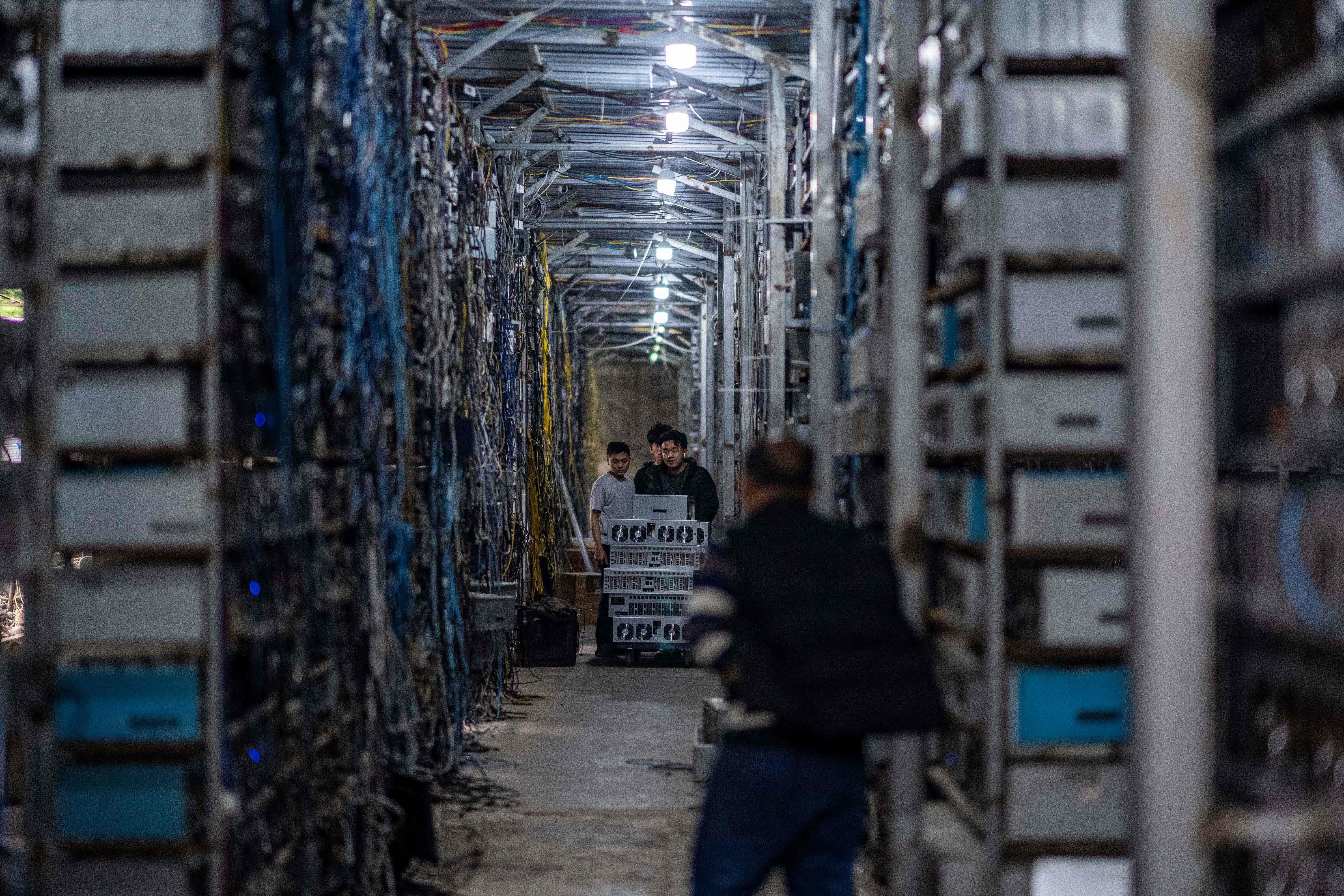Bitcoin mining operations rise in US and Kazakhstan after China ban
Mass exodus of bitcoin mining from China could make US share of market larger

Your support helps us to tell the story
From reproductive rights to climate change to Big Tech, The Independent is on the ground when the story is developing. Whether it's investigating the financials of Elon Musk's pro-Trump PAC or producing our latest documentary, 'The A Word', which shines a light on the American women fighting for reproductive rights, we know how important it is to parse out the facts from the messaging.
At such a critical moment in US history, we need reporters on the ground. Your donation allows us to keep sending journalists to speak to both sides of the story.
The Independent is trusted by Americans across the entire political spectrum. And unlike many other quality news outlets, we choose not to lock Americans out of our reporting and analysis with paywalls. We believe quality journalism should be available to everyone, paid for by those who can afford it.
Your support makes all the difference.The US and Kazakhstan are seeing a surge in bitcoin mining operations after crackdown on the process in China, reveals new data on global energy consumption for the process.
Bitcoin mining is a digital process which generates new units of the virtual currency by solving complex mathematical equations and requires energy-intensive computer operations.
Months before the crackdown on cryptocurrency mining in China in May, experts had noted that infrastracture development for the process in the country came to a standstill in anticipation of an official ban.
According to new data from the Cambridge Centre for Alternative Finance (CCAF), the fraction for the total combined computational power used to mine and process bitcoin transactions – known as the hashrate – had declined in China from about 76 per cent in September 2019 to 45 per cent in April 2021.
During this period, the hashrate for the US rose from about 4 per cent to 17 per cent, while that of China’s neighbour Kazakhstan rose from 1.4 to 8.2 per cent making its bitcoin mining operations the third largest in the world.
The analysis, according to CCAF, was based on data from four bitcoin mining pools across the world that represent between 32 and 37 per cent of the total hashrate over the examined period.
According to Peter Wall, chief of crypto mining company Argo, many Chinese bitcoin miners are moving equipment and setting up operations in the US.
The hashrate in Canada has also grown from 1 per cent in September 2019 to 3 per cent in April this year.
Experts say the mass exodus of cryptocurrency mining out of China following the country’s crackdown on the process since May 2021 could only make the US share of the mining market only bigger.
“A majority of the new equipment manufactured from May 2020 through December 2020 was shipped to the U.S. and Canada,” Mike Colyer, CEO of digital currency company Foundry, told CNBC News.
However, only 1.4 per cent of Kazakhstan’s energy supply comes from renewable sources and most of its electricity is produced from fossil fuels such as coal and natural gas, while renewables contribute to about 11 per cent of US electricity.
Despite this shuffle, more than half of mining operations worldwide have stopped operating and the entire global network of miners who were using 132 terawatt-hours of energy in mid May, used only 59 TWh early July.
According to Michel Rauchs from CCAF, while gains noted in other countries before the Chinese crackdown could be an indicator, further data and insights are needed to confirm this exodus.
Join our commenting forum
Join thought-provoking conversations, follow other Independent readers and see their replies
Comments